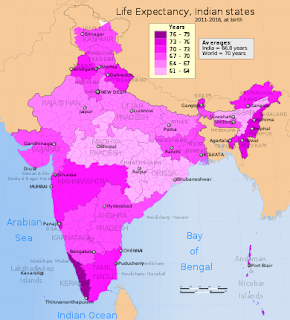भारत की संस्कृति (Culture of India)
Indian Culture - A Rich Tapestry of Traditions, Values, and Beliefs
Indian culture is a rich tapestry of traditions, values, and beliefs that has evolved over several centuries. The Indian subcontinent has been home to various civilizations and empires, each leaving an indelible mark on the cultural landscape of the region. The diverse influences of religions, languages, and customs have led to the development of a unique culture that is revered all over the world.
Religion and Spirituality
Religion and spirituality have always been an integral part of Indian culture. The country is home to several religions, including Hinduism, Buddhism, Jainism, Sikhism, and Islam. Each religion has its own set of beliefs, practices, and customs, but they all emphasize the importance of spirituality and the pursuit of inner peace.
Art and Architecture
India is renowned for its art and architecture, with several magnificent structures and artworks dating back several centuries. The country’s architecture is a perfect reflection of the diverse influences that have shaped the country’s cultural heritage. The Taj Mahal, one of the Seven Wonders of the World, is considered a masterpiece of Mughal architecture.
Cuisine
Indian cuisine is a delicious blend of flavors and spices that are unique to the country. Each region has its own cuisine, with distinctive flavors and ingredients. Indian cuisine is known for its vegetarian dishes, including the delicious curries and stews that are made with lentils and vegetables. The country is also known for its sweets and desserts, such as gulab jamun, rasgulla, and jalebi.
Festivals and Celebrations
India is known for its vibrant festivals and celebrations, which are celebrated with great enthusiasm and gusto. The country’s festivals are a reflection of its cultural heritage and religious beliefs. Some of the major festivals celebrated in India include Diwali, Holi, Eid, Christmas, and Guru Nanak Jayanti.
Family and Community
Family and community are important values in Indian culture. The family structure in India is large and extended, with several generations living under the same roof. Respect for elders is an essential value in Indian culture, with young people expected to care for their parents and grandparents. Community engagement is also highly valued, with several community activities and events that bring people together.
Conclusion
Indian culture is a vibrant and diverse tapestry of beliefs, practices, values, and traditions. The country’s cultural heritage is a reflection of its long and rich history, with various civilizations and empires leaving an indelible mark on its cultural landscape. Despite the diverse influences, Indian culture remains unique and deeply ingrained in the hearts and minds of its people.

.jpeg)

Comments
Post a Comment